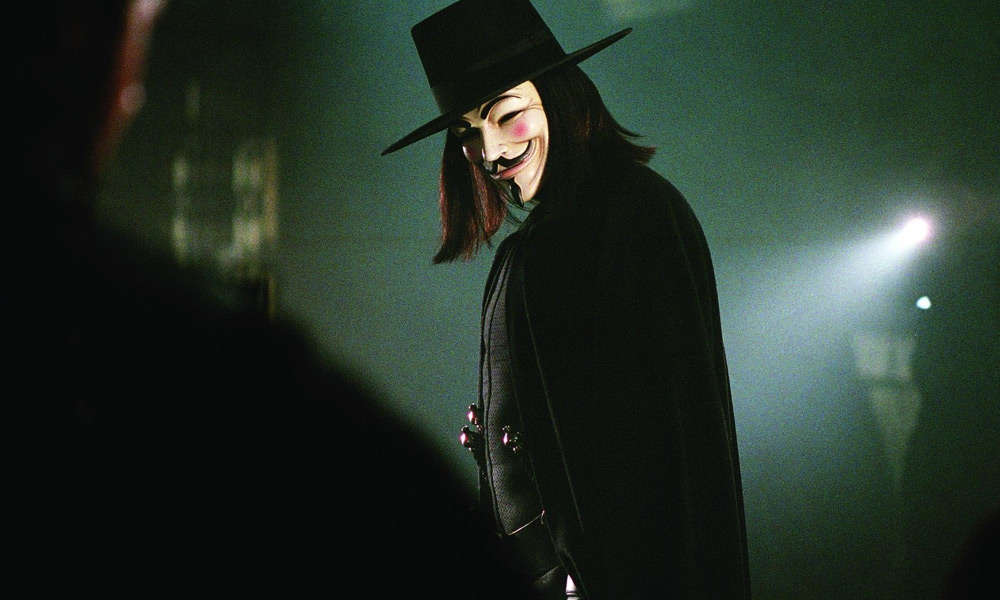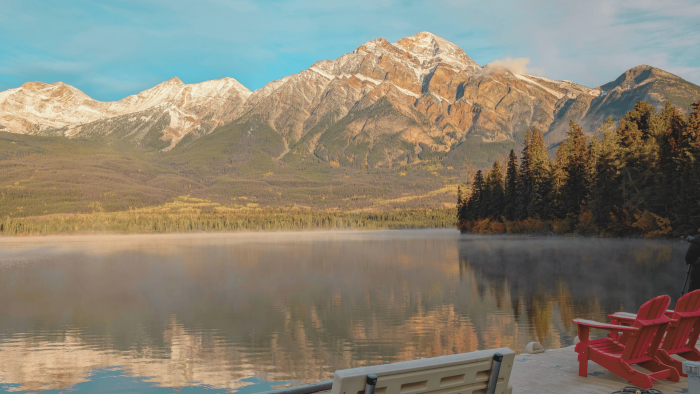Whenever we’re feeling like this world can’t get any more ludicrous, there’s nothing like a good dystopian film to offer us some perspective. Post-apocalyptic nightmare, futuristic totalitarian takeover, environmental wasteland—it’s a genre fraught with diverse settings and futuristic extrapolations, but one thing is always constant: Those world’s are so much worse than ours. But hot damn if it ain’t fun to watch the world burn every once in awhile.
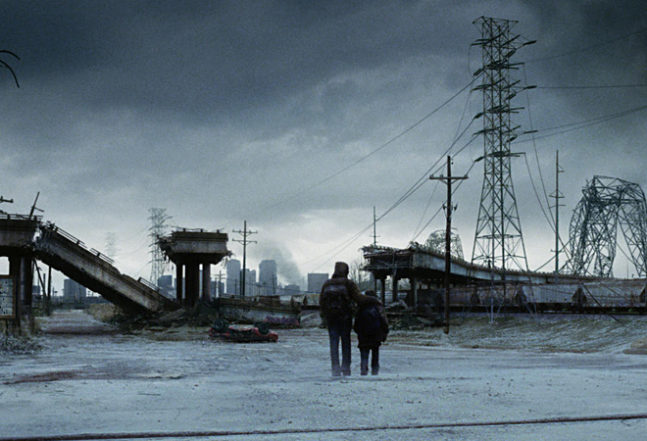
The Road
First of all, in its book form, The Road is easily one of the most suspenseful dystopian post-apocalyptic pieces ever released. There are moments in that book that had us physically shaking in fearful anticipation. In a rare occurrence, the adaptation definitely does the source material.It’s about a father and his son trying to survive in a post-apocalyptic American wasteland where everything is burnt out and dead, the world is cold, and those who haven’t died are fighting hard to stay alive while occasionally committing crimes against nature. Father and son are on a mission to get to the coast even though they don’t know what awaits them, and the only things keeping them alive are the clothes on their backs, the food they managed to scavenge, and a revolver with two bullets. Netflix
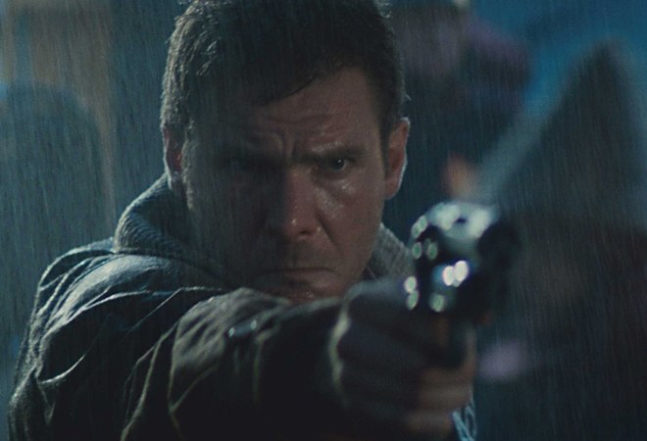
Blade Runner
The original Blade Runner is a science fiction dystopian masterpiece. Starring Harrison Ford as Rick Deckard, a retired cop living in 2019 Los Angeles. In this urban wasteland of corporate advertisements, pollution, electric lights, and flying cars, Deckard is called back to duty in order to help hunt down and eliminate a rogue band of replicants—human-like androids built for use in off-world colonization schemes—who’ve escaped and traveled to Earth for revenge. It wasn’t a hit when it was first released in 1982, but over the years it has gained a reputation and cult following for its intricately woven plot details and beautiful cinematography. Many consider it to be Ridley Scott’s masterpiece—and it is.

A Clockwork Orange
Where to begin with this incredible classic? Well, first, we’ll put it to you this way: A Clockwork Orange is so over the top, we’d argue our current sociopolitical climate couldn’t handle it. Written and directed by the one and only Stanley Kubrick, this film, set in a dystopian near-future filled with weird and unseemly violence and cultural decay, was meant to be a satirical social commentary about mental health, juvenile delinquency, sex, violence, and society. And from start to finish, it is an absolute rocket of a film. Alex and his “droogs” (thug friends) get hopped up on milk-plus at the milkbar (no, seriously), and then go out and have “a little of the old ultraviolence.” Describing what happens would spoil a lot about makes this ridiculous film so goddamn great, but we will say someone in a unitard gets beaten to death with an artistic dick sculpture while classical music plays in the background.

V for Vendetta
In a world where a corrupt and totalitarian government rules over its people with an iron fist, brainwashes its public with censored state-run media, murders dissenters with its brutish secret police force, and monitors everything everyone does, one man has vowed to disrupt and dismantle the establishment. This dystopian action drama stars Natalie Portman as Evey Hammond, a woman who’s rescued by V (Hugo Weaving), and shown firsthand how terrifying life really is for some of their fellow citizens. We love this movie because it hits home in the worst of ways.
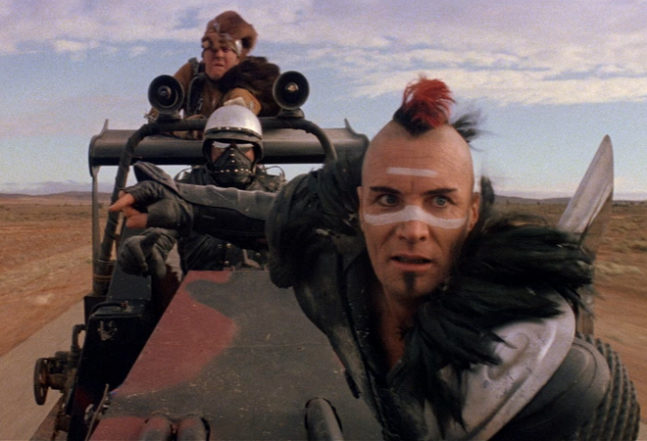
Mad Max 2: The Road Warrior
There are four films in the Mad Max franchise, and while many would argue that the most recent iteration, Mad Max: Fury Road, is the best in the series (it’s damn good), we’re giving the “Best Dystopian Shit Hole” award to Mad Max 2: The Road Warrior. This 1982 sequel features Mel Gibson as Max Rockatansky, who, after losing his wife and child to outlaw bandits in the first film, becomes a wandering nomad in Australia’s harsh and unforgiving outback. He stumbles upon a warring tribe and, after originally plotting to steal their valuable oil, agrees to help them fight another violent tribe of marauders led by a man named Humungus. The film is a visual masterpiece and is a pristine example of what a futuristic dystopian Wild West wasteland would look like—at least the ones we’ve always dreamt about. MAX GO
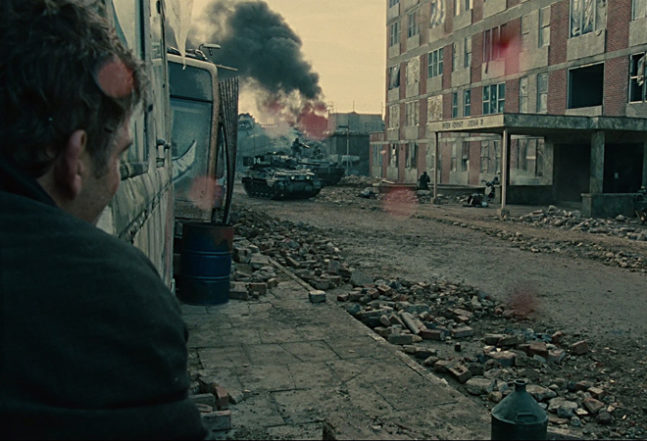
Children of Men
Children of Men takes place in a futuristic world where the human race has lost its ability to reproduce and faces total extinction, so the stakes start out pretty high. It’s in this world that Theo Faron (Clive Owen), a former activist, lives a depressing and angry life. His ex-wife, Julian (Julianne Moore), conscripts him into a job he’d rather not have, escorting a woman he’d rather not meet. The movie gives audiences a great look at the terrible things people do to each other when they have no reason to hope for the future, as well as what happens when hope is suddenly and forcibly reintroduced. Starz
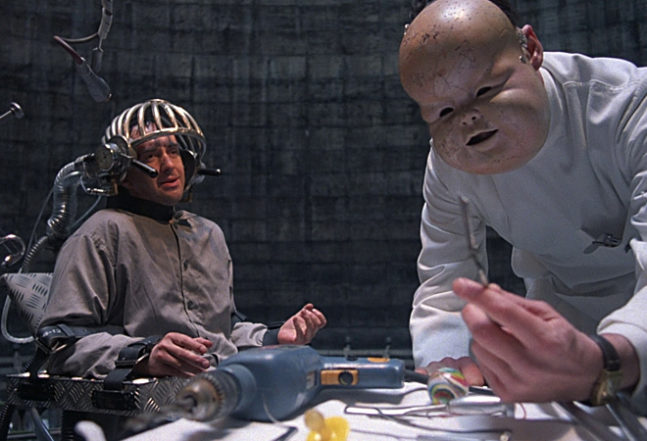
Brazil
We’ll come right out and say it: Brazil is a pretty fucking strange film, but in exactly the way you’d expect of a dystopian science fiction film written and directed by Terry Gilliam (of Monty Python). The film centers around Sam Lowry, a man working at a painfully boring dead-end job, living in an awful apartment, in a materialistic and post-industrial world that’s essentially run by machines. The oppressive totalitarian government is reminiscent of the kind of stuff you’d expect in movies/novels like V For Vendetta and 1984, only presented in a buffoonish light. You probably haven’t heard of this one, but it’s worth its weight in gold.
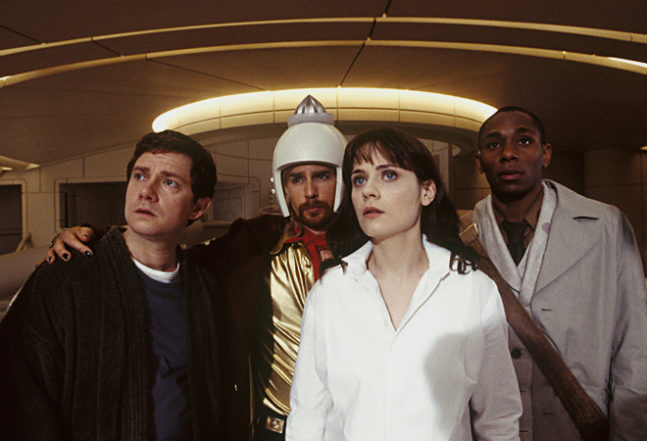
The Hitchhiker’s Guide to the Galaxy
The Hitchhiker’s Guide to the Galaxy is often overlooked as a dystopian film because it’s not particularly scary or creepy. In fact, it’s more of a sci-fi comedy, and the only overarching government in it is crippled by its own bureaucracy. But the world is destroyed pretty soon after the movie starts, so the movie technically is an apocalyptic tale. At least for humans. The Hitchhiker’s Guide to the Galaxy stars Martin Freeman as Arthur Dent, an earthling who’s saved from the Earth’s impending destruction by his friend and secret alien, Ford Prefect (Mos Def). They find their way onto a ship called the Heart of Gold, where they encounter President of the Galaxy Zaphod Beeblebrox (Mark Wing-Davey) and his companion Tricia “Trillian” McMillan (Zooey Deschanel), who are on a quest to find the Answer to the Question of Life, the Universe, and Everything. There’re a lot of layers to this onion, and the film is absolutely brilliant, being yet another time Douglas Adams felt he should rewrite his most famous series. HBO
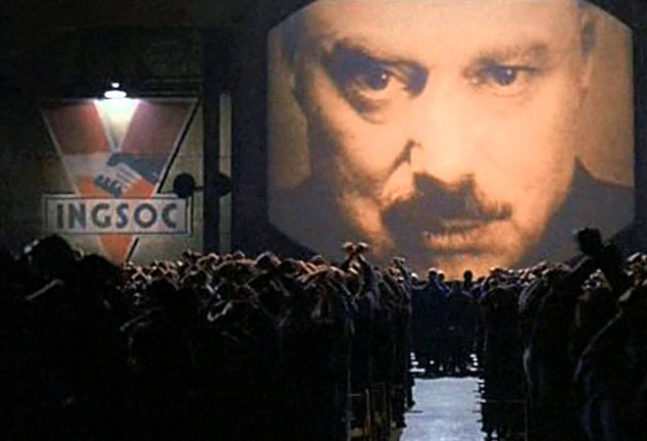
1984
The quintessential dystopian film, based on the quintessential dystopian novel of the same name, takes place in a totalitarian “superstate” called Oceania. The people of Oceania lived oppressed under the thumbs of the Thought Police, who monitor every aspect of their daily lives. The film’s protagonist, Winston Smith (John Hurt), works in the Ministry of Truth, rewriting history to fit the narrative dictated as important by the Party and its leader, Big Brother. Winston is extremely tired of his life in Oceania, until one day he meets a girl named Julia (Suzanna Hamilton), a bold and beautiful young woman who’s also a member of the Outer Party. They strike up a romantic and intimate relationship (which is illegal in Oceania), and eventually begin an affair. We love this film because it has stood up to the test of time over the decades, and because there’s no respite from it or happy ending here. It sucks the whole way through.
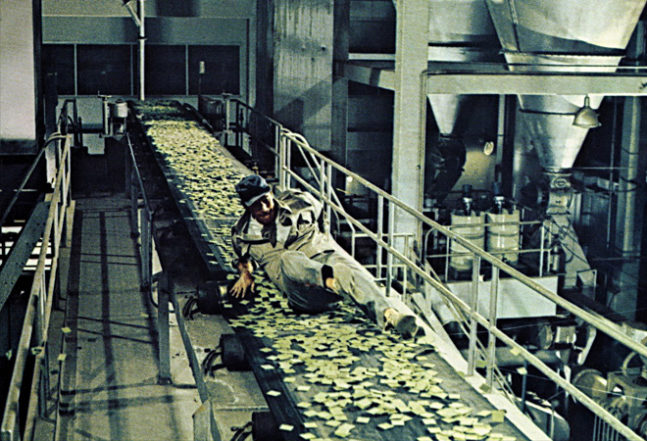
Soylent Green
This criminally underrated classic stars Charlton Heston as Detective Thorn, a man hired to investigate the brutal murder of one of the world’s most wealthy and storied industrialists, whose company is responsible for Soylent Green, a life-sustaining wafer that serves as the only means of survival for the severely overpopulated planet. This futuristic dystopian nightmare envisions an extremely overpopulated world where it is physically impossible to get anywhere or do anything without crawling over other people. For instance, New York City is home to 40 million people, alone). Essentially, Soylent Green is believed to have been produced from plankton in the ocean, until Thorn takes an oceanic report to a group of researchers who inform him that the world’s oceans are dead and no longer producing plankton, which means that Soylent Green must be made of something else… But what?!

